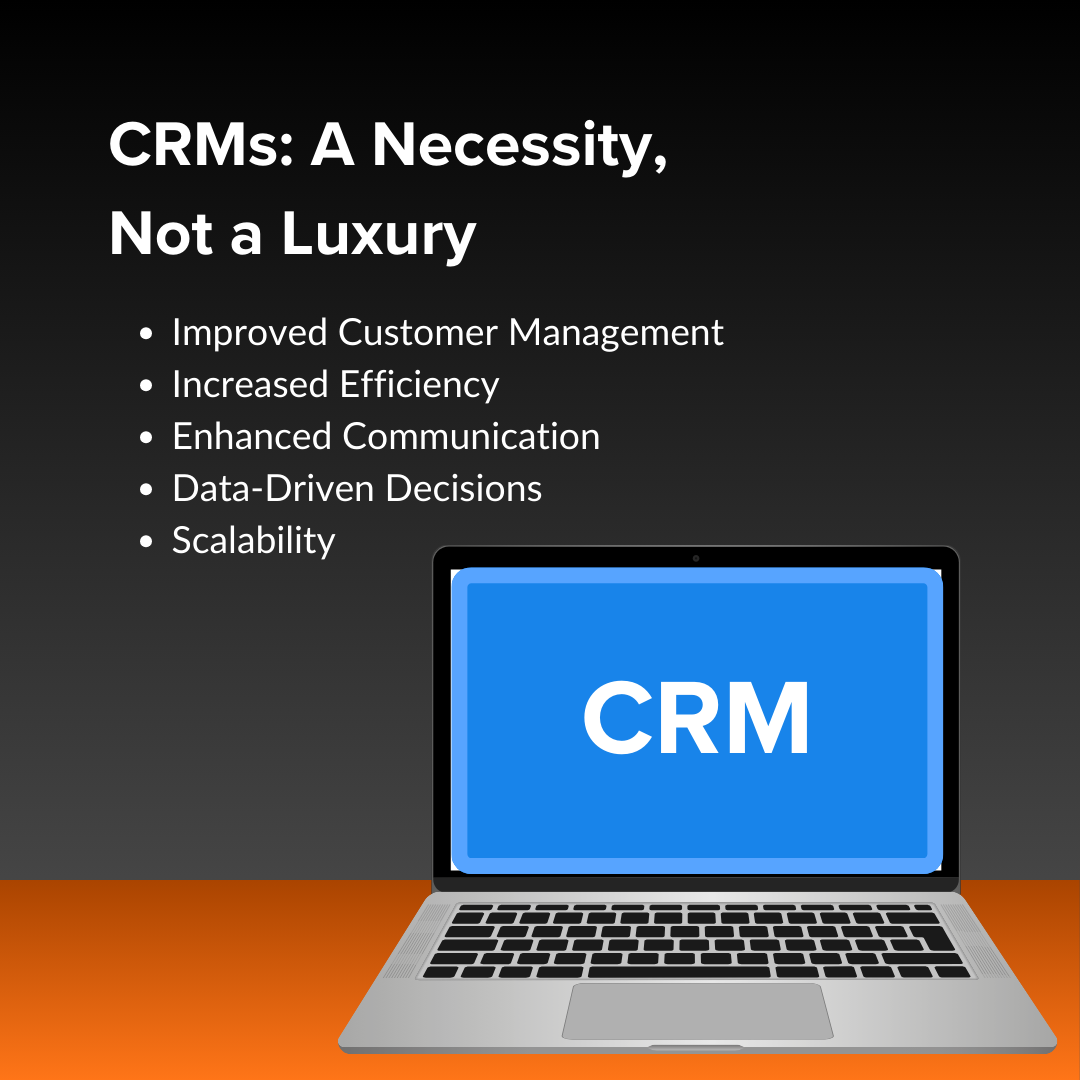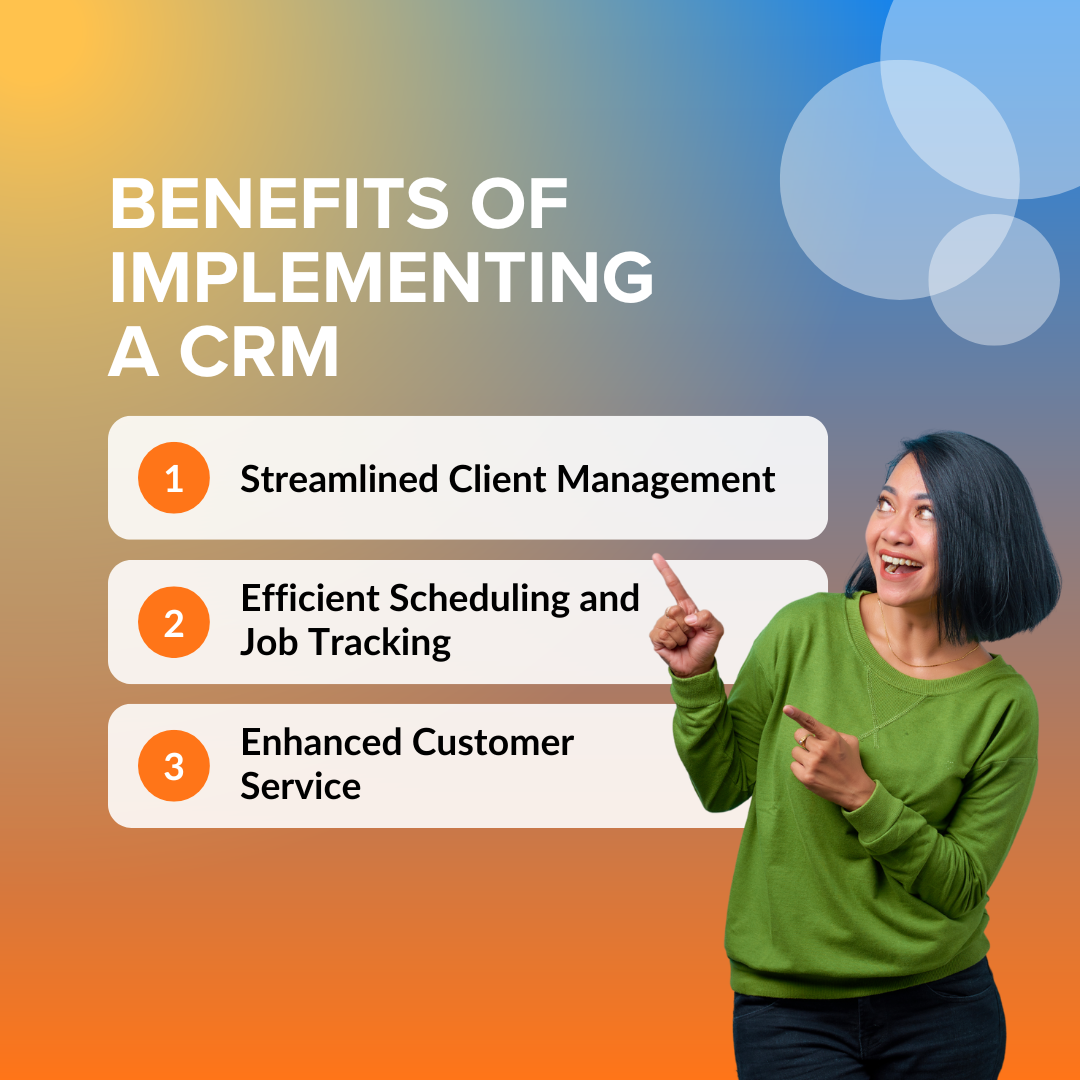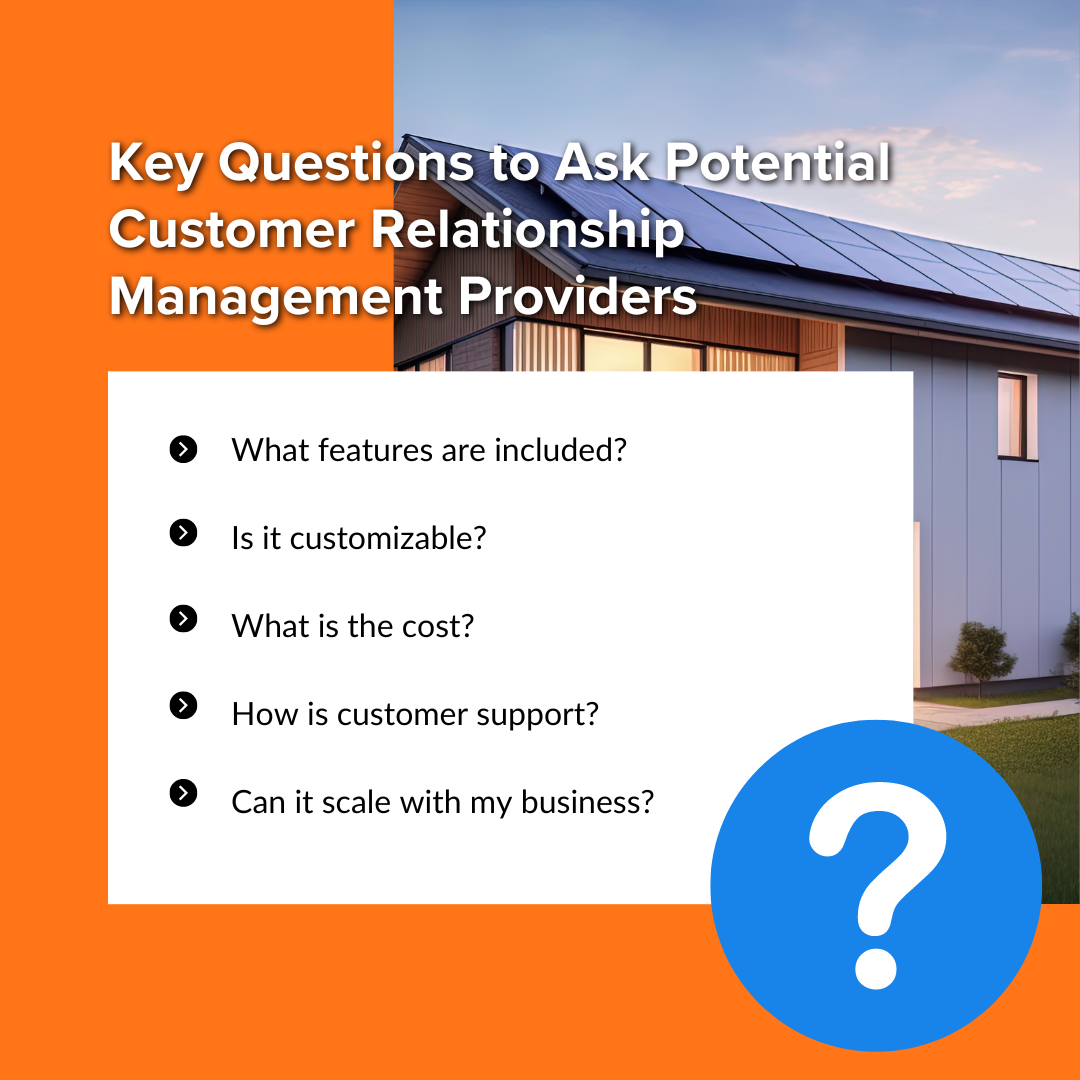September 11, 2024
A Roofing CRM is not just a digital address book; it’s a powerful tool designed to enhance every interaction with your customers, from initial contact to project completion.
It offers a centralized platform where all customer interactions, job details, and sales opportunities are managed, ensuring that no detail is overlooked and every customer feels valued. Choosing the best roofing CRM can significantly impact your business success.
In this blog, we will delve into the numerous benefits of adopting a Roofing CRM, exploring how it can transform your business operations.
Whether you’re a small roofing contractor or a large roofing company, understanding and implementing a CRM system can be a game-changer for your business.
Roofing industry and its unique challenges
Roofing business owners, though critical and indispensable, face unique challenges that can impact the efficiency, profitability, and sustainability of their roofing businesses.
Unlike many other sectors, roofing businesses must navigate a complex landscape that includes variable weather conditions, seasonal demand fluctuations, safety concerns, and intense competition.
CRMs: A Necessity, Not a Luxury

Customer relationship management software is essential for roofing businesses of all sizes. In a competitive market, the ability to manage customer relationships efficiently and effectively can be the difference between success and failure.
Here’s why CRMs have become a necessity:
1. Improved Customer Management
A CRM system allows roofing businesses to keep track of customer data, including interactions, preferences, and histories, enabling personalized and responsive service.
2. Increased Efficiency
CRMs free up valuable time for your sales team to focus on core activities by automating routine tasks such as scheduling, follow-ups, and data entry.
3. Enhanced Communication
CRMs provide a centralized platform for communication, ensuring that all team members are on the same page and that customer inquiries are handled promptly.
4. Data-Driven Decisions
With comprehensive analytics and reporting features, CRMs provide insights into customer behavior, sales trends, and operational efficiency, facilitating informed decision-making.
5. Scalability
As your business grows, a CRM system can scale with you, managing increasing numbers of customers and projects without compromising service quality.
Know more here, 10 Powerful Ways a Roofing CRM Can Boost Your Business Growth.
Unique CRM Needs in the Roofing Industry
The roofing industry faces specific challenges that require tailored solutions for roofing companies. A CRM system designed for roofing businesses addresses these unique needs, ensuring efficient operations and enhanced customer satisfaction.
1. Seasonal Demand
The roofing industry is highly affected by seasonal fluctuations. Demand typically spikes in the spring and summer months when weather conditions are favorable for roofing projects, while it tends to decline during the colder months.
This seasonality impacts how roofing businesses interact with customers and manage projects. A CRM system helps roofing businesses adapt to these seasonal changes by:
- Forecasting Demand: Using historical data to predict busy periods and plan accordingly.
- Resource Allocation: Ensuring that the right amount of labor and materials are available when needed.
- Customer Communication: Keeping clients informed about scheduling changes due to weather conditions or seasonal delays.
2. Varied Job Types
Roofing projects range from minor repairs and maintenance to full installations and emergency services. Each type of job has different requirements and timelines, making project management a complex task.
A CRM system caters to these varied needs by:
- Customizing Job Templates: Creating templates for different types of projects to ensure consistency and efficiency.
- Tracking Project Progress: Monitoring the status of various jobs to ensure timely completion.
- Managing Client Expectations: Providing clear communication about the scope and timeline of each project.
Benefits of Implementing a CRM

Implementing the best roofing CRM system offers numerous benefits for roofing businesses. It enhances client management, improves scheduling and job tracking, and elevates customer service, ultimately driving business success.
1. Streamlined Client Management
A CRM system centralizes all client information, including contact details, communication history, and project records. This centralized storage enhances personalized service by:
- Providing a Complete View of the Customer: Understanding the customer's history and preferences.
- Improving Responsiveness: Quickly accessing information to answer client inquiries.
- Enhancing Relationship Management: Building stronger, more personal relationships with clients.
2. Efficient Scheduling and Job Tracking
Managing multiple projects and resources can be challenging without a streamlined system. A CRM provides tools for:
- Automated Scheduling: Ensuring that appointments and follow-ups are never missed.
- Resource Allocation: Optimizing the use of labor and materials.
- Project Tracking: Monitoring progress to ensure deadlines are met.
3. Enhanced Customer Service
A CRM system consolidates all client communications in one place, allowing businesses providing roofing services to achieve better response times and service quality by:
- Tracking Communication: Logging all interactions to provide context and continuity.
- Managing Service Requests: Ensuring that customer issues are addressed promptly and effectively.
- Improving Follow-Up: Automating reminders for follow-ups to maintain customer satisfaction.
Features to Look for in a Roofing CRM
Choosing the right CRM involves identifying key features that meet the unique needs of a roofing business. Essential features include lead tracking, customizable workflows, and integration capabilities.
1. Lead Tracking and Sales Pipeline Management
Tracking leads and managing the sales pipeline are crucial for maintaining a steady flow of business. Important features include:
- Lead Capture: Automatically capturing leads from various sources (e.g., website, social media).
- Pipeline Management: Visualizing the sales process to track opportunities and progress.
- Sales Analytics: Analyzing sales data to identify trends and areas for improvement.
2. Customizable Workflows
Tailoring workflows to different roles within the company can significantly improve efficiency. Look for features like:
- Role-Based Access: Ensuring that team members have access to the information they need.
- Custom Task Lists: Creating task lists specific to different job types and roles.
- Automation: Automating routine tasks to free up time for more critical activities.
3. Integration Capabilities
For seamless operations, a CRM should integrate with other tools your business uses, such as:
- Email Platforms: Syncing email communications for consistent tracking.
- Scheduling Tools: Integrating calendars to manage appointments and deadlines.
- Accounting Software: Streamlining invoicing and financial tracking.
Choosing the Right CRM for Your Roofing Business
Roofing-Specific vs. General CRMs
When choosing a CRM, you’ll need to decide between a roofing-specific CRM and a general CRM. Each has its pros and cons:
- Roofing-Specific CRMs: These are tailored to the unique needs of roofing businesses, offering industry-specific features and workflows. They can simplify implementation and improve relevance. However, they may be less flexible or more expensive.
- General CRMs: These offer broader functionality and can be customized to fit various industries. They are often more affordable and scalable but may require more setup and customization to meet roofing-specific needs.
Key Questions to Ask Potential Customer Relationship Management Providers

When evaluating CRM solutions, consider asking the following questions:
What features are included?: Ensure the CRM offers essential features like lead tracking, project management, and integration capabilities.
Is it customizable?: Check if the CRM can be tailored to your specific business processes and workflows.
What is the cost?: Understand the pricing structure, including any hidden fees or costs for additional features.
How is customer support?: Evaluate the quality and availability of customer support.
Can it scale with my business?: Ensure the CRM can grow with your business and handle increasing numbers of clients and projects.
Sunbase Roofing CRM software
Sunbase Roofing CRM Software revolutionizes business management for roofing contractors, enhancing efficiency and driving growth.
With targeted canvassing, digital marketing, and referral tools, contractors can generate more leads and ensure a steady flow of qualified prospects. Sunbase's user-friendly interface and powerful features make it the ideal CRM solution for roofing contractors aiming to elevate their business to the next level.
Wrapping Up
Whether you choose a roofing-specific CRM like Sunbase or a general CRM, the key is to find a solution that meets your unique business needs and helps you build stronger customer relationships and streamline your sales processes.
Contact Us- Sunbase
Unlock unparalleled growth with Sunbase Roofing CRM the tool that doesn’t just manage your business, but accelerates it. Dare to be different, let Sunbase drive your success to the next level. Contact Us.
Frequently Asked Questions
Q1. How can a CRM system improve my roofing business?
Ans - A CRM system can streamline operations, enhance customer relationships, improve sales management, and provide valuable insights into your business performance.
Q2. Is a roofing-specific CRM better than a general CRM?
Ans - Roofing-specific CRMs offer industry-specific features and workflows that can simplify implementation and improve relevance. However, general CRMs are often more affordable and customizable.
Q3. What features should I look for in a Roofing CRM?
Ans - Key features to look for include lead tracking and sales pipeline management, customizable workflows, integration capabilities, and robust customer service support.
Q4. How long does it take to see results from using a CRM?
Ans - It varies, but many businesses start noticing improvements in efficiency and customer management within a few months of implementation.
I agree to receive marketing messaging from Sunbase at the phone number provided above. I understand data rates will apply, and can reply STOP to OPT OUT.







